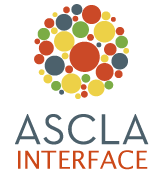by Glennor Shirley, 2008 LSSPS Chair, Library Coordinator, Maryland State Department of Education, Correctional Education Libraries
Prison librarians face many of the same issues as their counterparts in public, special, and academic libraries. They are serving an increasingly diverse population, have to deal with constantly changing technology, budget constraints, and more than any other group, their modus operandi is significantly affected by the political climate.
A climate that is tough on crime results in more persons being incarcerated. In the majority of cases, there is neither adequate additional funding for human and material resources and facility construction, nor well thought out plans for educational and library services to meet the information needs of the newly incarcerated. In several situations, faith-based programs have been singled out for priority funding, while library space is reduced and library collection is based on donations.
The Library Standards for Adult Correctional Institutions, prepared by ASCLA in 1992, has been the guide for prison librarians to help prison administrators in the planning, implementation, and evaluation of prison library services. This document, which outlines standards for library access, administration, staffing, budget, facility, services, and materials, is now outdated.
A few members of the Library Services to Prisoners Forum (LSPF) headed by Diana Reese, Institution Librarian for Colorado, is working to update the document to align it more with current realities, especially with regards to technology.
As we work on the update, we hope to continue our collaboration with the American Correctional Association as this group comprises the wardens whose help and support librarians need to implement programs and services that meet the needs of the changing prison population.

2 comments
Margo Fesperman, Dir. Lib. Services says:
Jan 12, 2009
So glad the standards are to be updated. I’m very fortunate to have a supportive administration although dollars are becoming more limited. I am currently in the process of designing a new library space for a 1700 bed facitlity. Any and all feedback would be appreciated.
Mecklenburg County
Charlotte, NC
Beverly Ferris Veglas says:
Jan 13, 2009
The update is long overdue with particular attention to incorporating the electronic databases relevant to law libraries and the ramifications that accompany introducing such a format in the Prison environment. ACA takes its lead from ASCLA.Library Standards for Adult Correctional Institutions recommendations published through the ALA when setting its standards for accreditation of Correctional Facilities across the country.